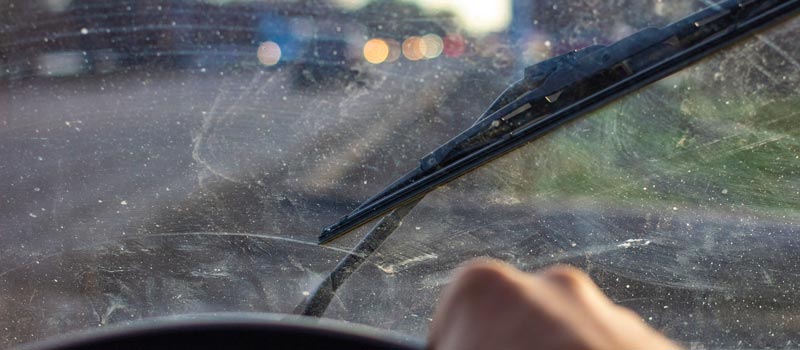Brakes, a new alternator, or a new timing belt might be well beyond your ability for automobile repairs. But the odds are, you can probably perform a few small tasks such as refilling some of your car’s important fluids and replacing your windshield wiper blades. While these repairs may seem menial in nature, they can save you from costly repairs down the road.
In today’s blog, we are going to look at how windshield wiper blades can impact your car and your driving performance. This will teach you when to replace them to keep you safe and your car protected.
The Makeup of a Windshield Wiper Blade
To the naked eye, windshield wiper blades appear to be one solid piece. But that’s not really the case. They actually are made of a flexible metal bar covered with a layer of rubber. Over time, the rubber edge of your wiper blade may start to show signs of wear and tear. Auto experts recommend that on average, windshield wiper blades be replaced every six to 12 months, even though some brands on the market tout a 3-year lifespan.
Wear can come from several elements, but ultraviolet exposure, cleaning solutions, road debris and even simple friction are all known culprits.
As these elements cause deterioration of the windshield wiper blades, you, the driver, will start to notice. While these signs begin to show up minimally, they can quickly lead to larger problems for your vehicle.
Sight Becomes Impaired
The first sign of windshield wiper blade wear comes when your sight is impaired while driving. Wiper blades are meant to literally wipe rain and other debris off of a windshield out of a driver’s line of sight. As the rubber breaks down or develops small rips or tears, water will remain on the windshield and streaks become more consistent.
If this is the case, it’s recommended to spend a few minutes inspecting the integrity of your windshield wiper blades. Look for torn or split rubber or possible debris that could be stuck to the wiper. In some instances, you may be able to clean the wiper blades with a gentle cleaning solution like Dawn dish soap and remove any particles that are contributing to the wiper’s poor performance. In other cases, when torn rubber is obvious, it’s time to replace the wipers.
Noises Begin
A driver may hear a grinding or scraping noise before any major damage from a broken windshield wiper blade appears on the windshield itself. According to Auto Zone, the blades are supposed to glide cleanly and gently across the windshield. Audible noises like squeaking could be an indication that the rubber covering the metal rod is damaged.
Another sound to be aware of is a vibration or chatter, which is a sign that the wiper blade isn’t resting directly on the windshield. Some external element is usually the culprit and should be removed to prevent any permanent damage to the windshield.
Scratches Appear
If deteriorating windshield wipers remain on a car and are used frequently, there comes a time when the rubber is worn so thin or breaks off altogether that the flexible, metal rod inside the windshield wiper can start to rest directly on the windshield. When this happens, scratches in your windshield will develop quickly.
If you see thin, arc-shaped lines starting to appear on the windshield glass, immediately stop using the wipers and get them replaced. The longer this scratching persists, the more serious the damage to auto glass becomes.
Replace Your Auto Glass Today!
If you have a crack or chip in your windshield, you are actually harming your windshield wipers the longer you leave the glass unattended. Every time your windshield wipers run across that blemish in the glass, the wiper is torn and damaged and can lead to any of the problems mentioned above.
If you have a chip or cracked windshield, act now and employ the services of the professionals at Auto Glass & Tint Shop. We will treat you and your vehicle with excellence while providing a seamless, stress-free experience. Request a free quote or give us a call at 913-491-8468.




